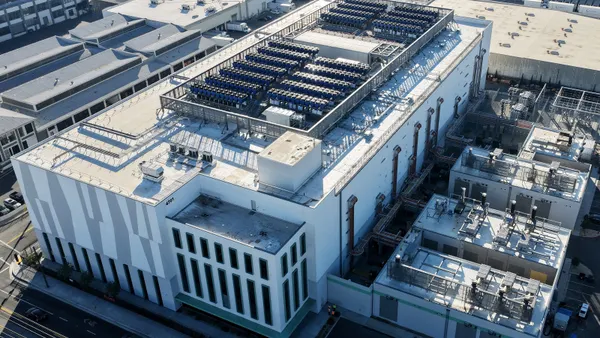Dive Brief:
-
The California Independent System Operator (CAISO) has approved several proposals to support improved integration of storage and demand response resources in the wholesale electricity market.
-
One of the proposals calls for a flexible ramping product to compensate generation resources that have the technology capabilities to respond quickly to real-time conditions.
-
CAISO also approved a proposal to undertake a $13.5 million capital improvement project to design and implement a new energy management system as well as replace aging technology infrastructure.
Dive Insight:
As California pursues some of the most aggressive renewable goals in the nation, the Independent System Operator is moving to better integrate renewable and other distributed resources into the state’s wholesale grid.
California is on track to source 33% of its power from renewable resources by 2020, and has a new goal set by the governor to derive 50% of its energy from renewable by 2030.
Back in July, CAISO approved a plan that made it the first U.S. wholesale market that allows aggregators of distributed energy resources to sell into the wholesale market.
In the latest step toward reaching that goal, CAISO on Feb. 3 approved several proposals, including one that would create a new ramping product.
If load or supply resources increase the ramp, the market will charge them for the flexible ramping product. If load or supply decreases the ramp, the market will compensate them.
"Infusing our market design with more flexibility means more efficient grid operations that help keep costs low, meet state and federal environmental goals, and strengthen grid reliability to meet the needs of sophisticated energy consumers across the West," Steve Berberich, ISO president and CEO, said in a statement.
The investment in a new energy management system is for software and hardware to better monitor and control the integration of renewable resources, energy storage devices and demand response aggregations.
The $13.5 million project will not require any debt financing and will be funded from CAISO capital reserves on hand.
"The proposals continue our ongoing efforts in creating a flexible grid that will serve us well into the 21st century," Berberich said.
CAISO has filed the approved proposals at the Federal Energy Regulatory Commission for review.











